Photography Alexandra MacAlpine
A Black Trio Angus Bull.
Sign up to our mailing list for the best stories delivered to your inbox.
The couple had to completely start from scratch again.
WORDS AND PHOTOGRAPHY ALEXANDRA MACALPINE
As they walk together across a paddock at the top of their 440 hectare property, they see a breathtaking view of the landscape. A mob of Angus bulls observes them from a distance, their sleek summer coats jet black and covered with a fine layer of mud from cooling off in the dam. Matthew, 41, and Shelley, 36, tune in to the deep, lowing grunts of the bulls, as they begin discussing when they should move the stock on to the next paddock.
Situated 11 kilometres south-west of Cassilis in the Upper Hunter region of New South Wales, Ingleburn is home to Matt and Shelley and their seven-year-old twin boys Eli and Owen. The property has been in the Piper family since the 1960s when Shelley’s grandparents bought Ingleburn and farmed the land.
“When my grandparents moved here they did a lot of cropping and ran sheep,” explains Shelley. “It was my parents, Sam and Meg, who began breeding Angus bulls nearly 20 years ago.”
When Matthew and Shelley took over the reins in 2012, their passion for the Angus breed drove the couple to cultivate the breeding and genetics and grow the stud to become what it is today: Trio Angus stud.
As the couple continue walking past their young bulls in the paddock they reflect on a time when they weren’t standing in knee-high grasses at the start of summer.
“The spring of 2016 was pretty good,” Matthew begins, “but it only created a bigger fuel load running into summer and for what was to come.”
On Saturday, February 11, 2017, lightning struck the ground in the Warrumbungle Shire, 47 kilometres west of Ingleburn. That lightning strike would go on to become one of the worst bushfires experienced in New South Wales, the Sir Ivan Fire.
“The fire burned through 30 kilometres of bushland in six hours,” Shelley recounts. There’s silence as the couple mentally unpack their memories. “The Rural Fire Service weren’t able to contain it,” Matthew continues.
“That had us very worried,” Shelley adds.
By the next morning, the bushfire was at their front gate. With very little time to prepare, the couple — who only recently had brought home 11-week-old twins Eli and Owen — were forced to defend their property and push their cattle to safety from a bushfire that was so intense it created its own weather storm.
“It wasn’t safe for me to be there with the boys, so I went to Merriwa with Mum and left Dad, Matt and our two workers to do what they could,” Shelley recounts.
Fortunately, Shelley and Matthew’s home was saved. The sheer ferocity of the fire forced the local Cassilis and Merriwa Rural Fire Brigades to seek safety at Ingleburn and, working together, they managed to protect the house and sheds. But the couple did lose cattle and farming infrastructure, which devastated them.
“Even the cattle that we had moved, a lot ended up dying from suffocation from the smoke,” Shelley recalls. “It was so intense.”
The aftermath of the bushfires saw Matthew and Shelley treating their remaining cattle for burns and sourcing feed for them. Help arrived in the form of family and friends who began rebuilding perimeter fences to keep their cattle in.
“It wasn’t pretty. The hardest part was that cows started calving the day after the fire went through,” adds Matthew. “We bottle-reared a lot of calves because the cows’ udders were all burnt.”
It’s been nearly seven years since the Sir Ivan Fire. The effects of the bushfire and the drought that followed it in 2018 and 2019 gave Matthew and Shelley time to assess how they were managing their land. This saw the couple shift to a regenerative land management model, with the guidance and support of Natures Equity’s Grazing Naturally system, developed by Dick Richardson.
“After the bushfire, we were basically starting from nothing, so we had to look at a different way of doing things that would work for our land and our stud,” explains Matthew. Shelley adds, “The process we’ve been through, from the bushfire to where we are now, gave us a really clear vision for our business.”
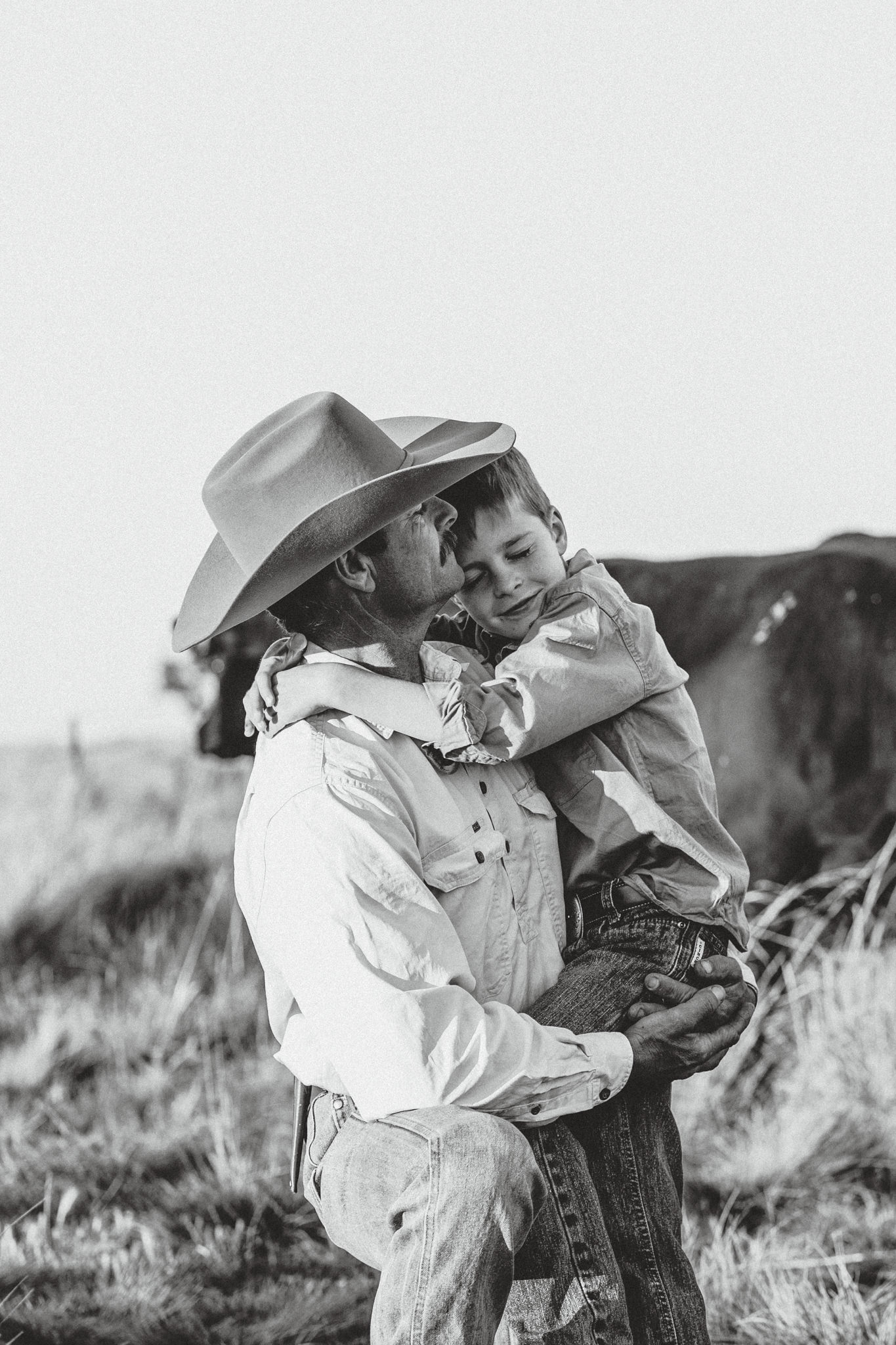
Photography Alexandra MacAlpine
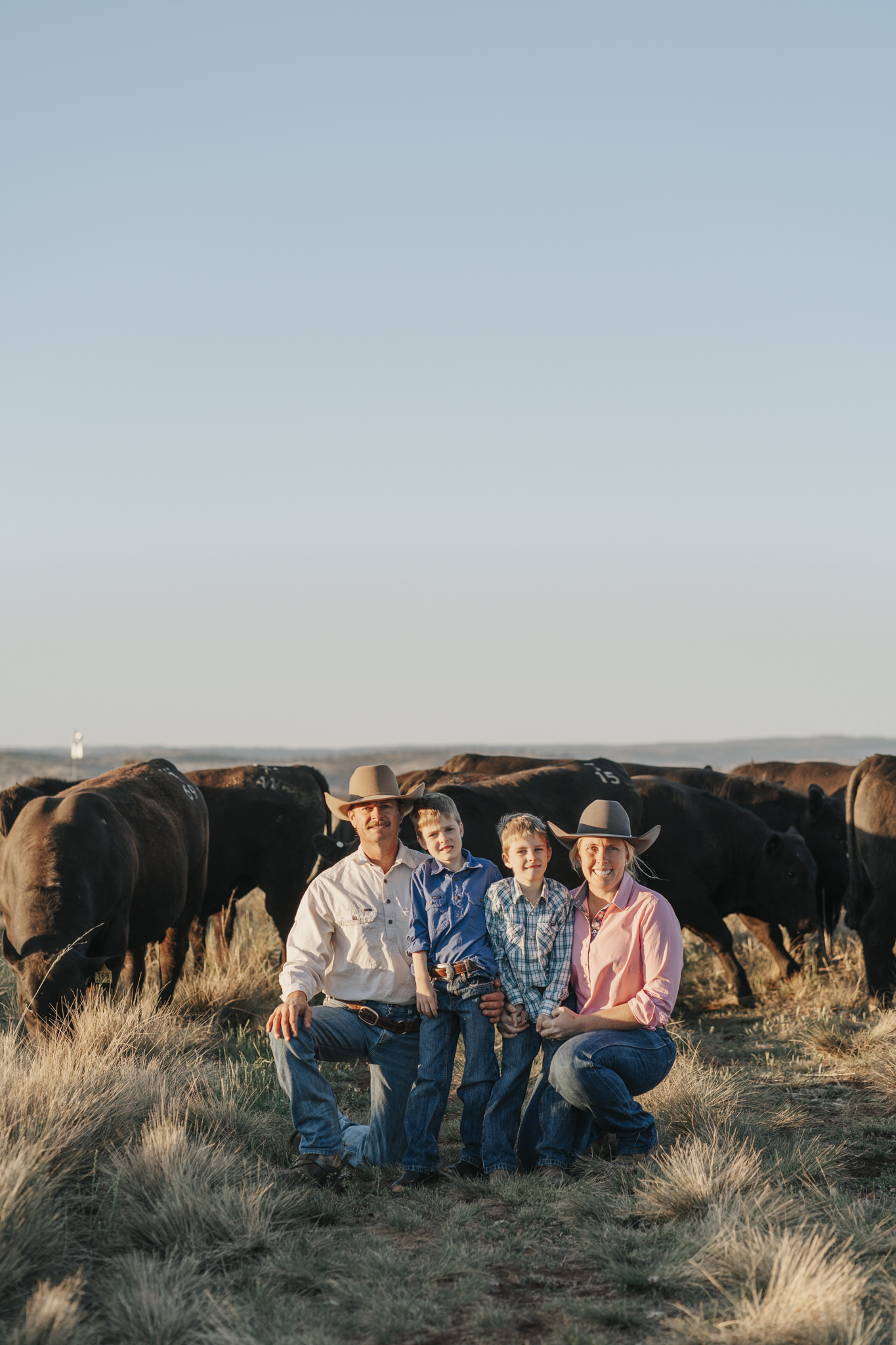
Photography Alexandra MacAlpine
The couple have goals for both Ingleburn and Trio Angus that include 100 per cent groundcover with endemic plant species as well as adjusting the genetics of their bulls to suit a holistic grazing process.
“In a short period of time you can see the difference already. Our country looks amazing: it’s got plenty of feed. We are breeding bulls that thrive with this style of management,” Shelley explains.
As the setting sun casts a warm golden glow across the mountains of the Coolah Tops National Park, Matthew and Shelley continue their stroll through the paddock. They take a moment to inspect the knee-high grasses that surround them. Their heads lean together as they use a small shovel to separate the grasses and excavate into the ground. The grass is dry, the colour of straw, but it dances in the gentle breeze.
A green tinge can be seen at the base of the grass, as Matthew firmly tugs at the clump he has just dug up and frees it from the dense, moist soil, exposing its extensive root system for inspection. The herd of young bulls that has been observing them continues its journey: happy, healthy and thriving on the land Matthew and Shelley are regenerating.
For more on their farming life and regenerative farming practices, visit Trio Angus or follow them on instagram.
HOLISTIC GRAZING MANAGEMENT
The Grazing Naturally system is a program developed by Dick Richardson of Natures Equity, which supports farmers with transition to a system that can be adapted to their location and operation.
Resource Consulting Services Australia (RCS) provides a range of online and on-farm programs focusing on working with nature.
The Savory Institute is an international organisation that provides information on holistic management processes and land regeneration.
Head to our subscription page to order your copy of the Graziher x Rabobank 2025 diary featuring Shelley!
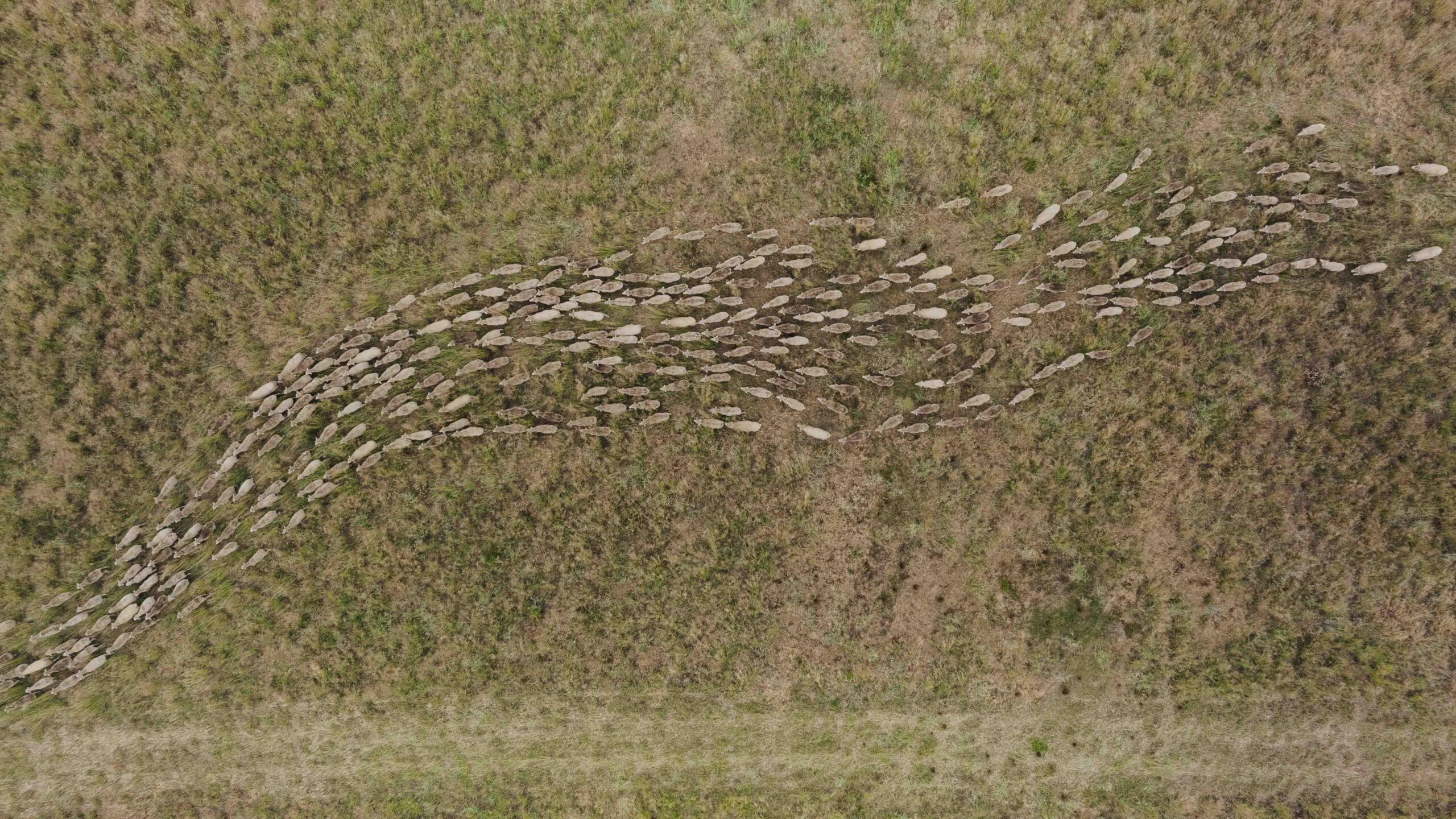
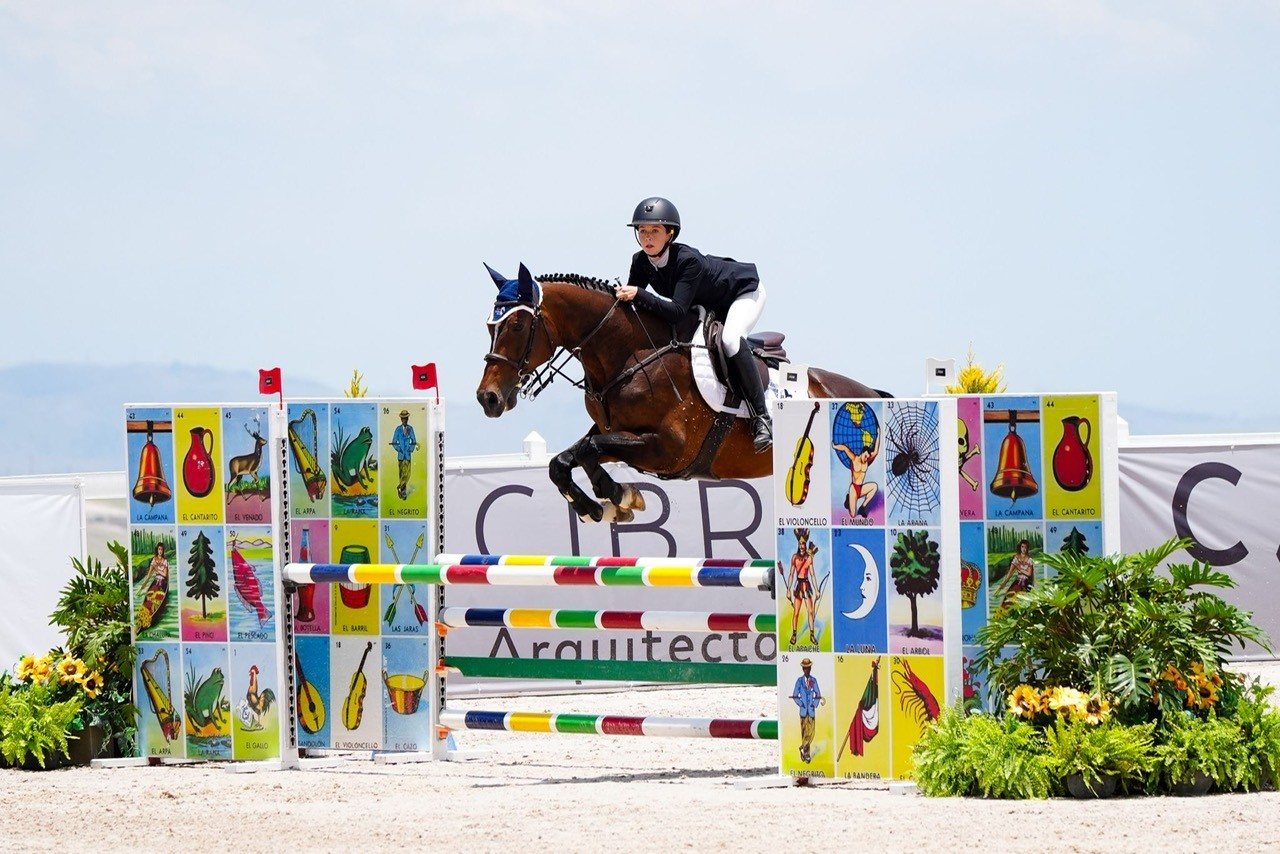
As a student of Haileybury Pangea’s “online campus”, Marly Wright can pursue her passion without sacrificing her schooling.
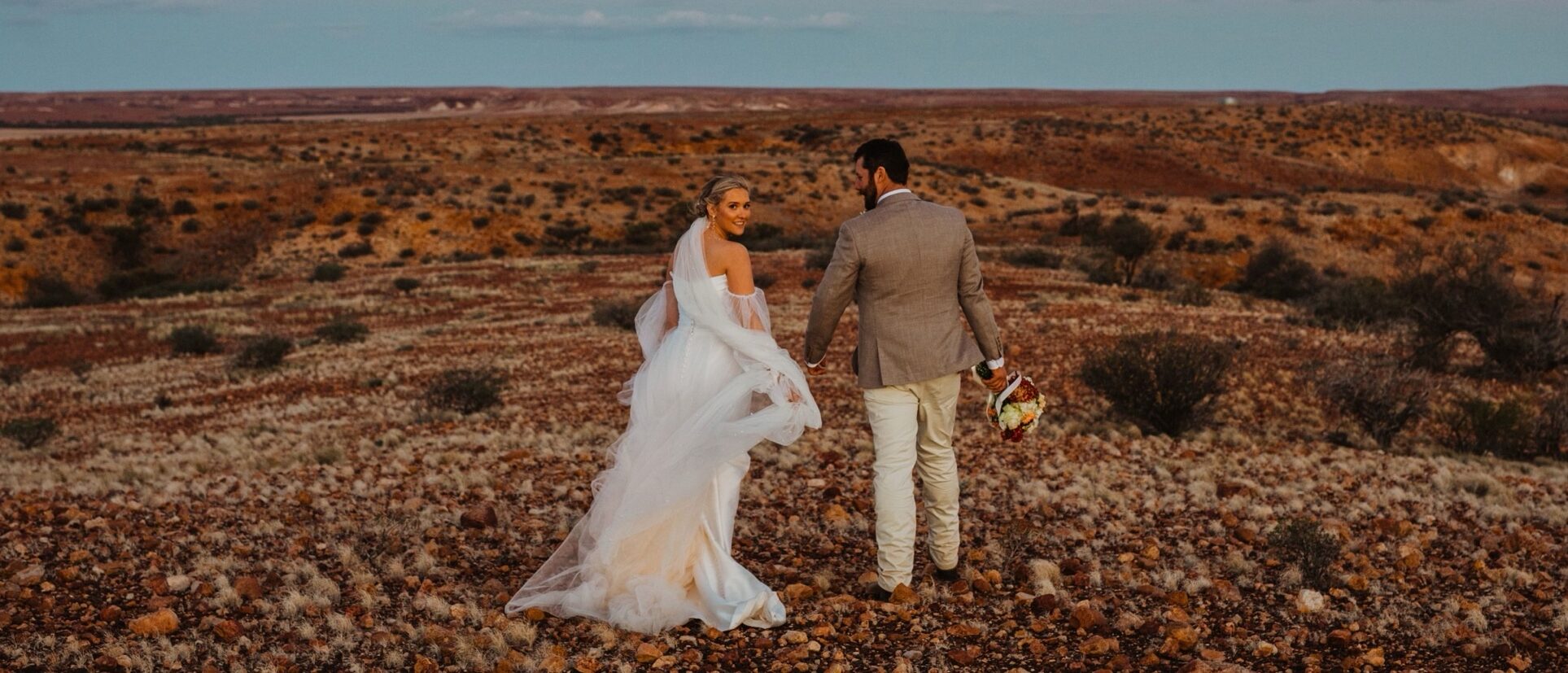
Some vendors drove 12 hours to be at Sarah Knight and William Clarke’s big day.